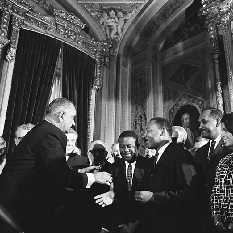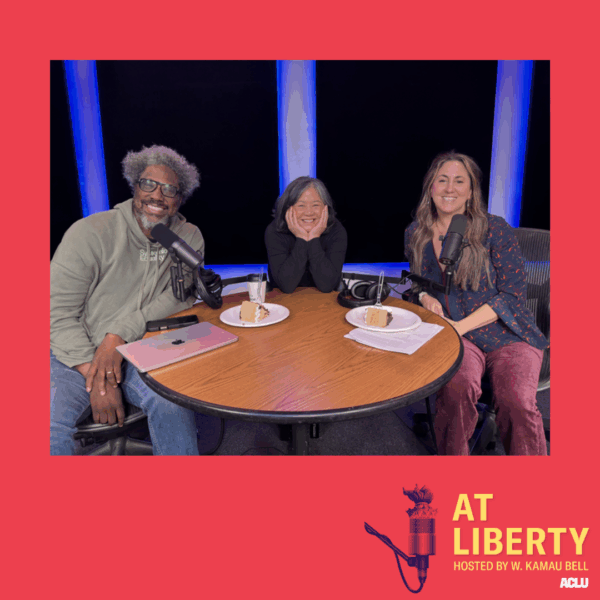
During the summer of 1964, a coalition of civil rights groups and almost a thousand student volunteers converged in Mississippi to register African-American voters. The “Mississippi Summer Project” was met with unrelenting violence: 1,000 arrests, 35 shootings, 30 bombed buildings, 35 burned churches, 80 beatings, and at least six murders. The following year, to sustain the focus on the plight of African-American voters in the South, civil rights leaders marched from Selma to Montgomery, Alabama. On March 25, 1965, the final day of the march, Martin Luther King Jr. vowed to continue fighting for the right to vote, earn, and learn—all without racial barriers:
Let us march on segregated housing (Yes, sir) until every ghetto or social and economic depression dissolves, and Negroes and whites live side by side in decent, safe, and sanitary housing. (Yes, sir) Let us march on segregated schools (Let us march, Tell it) until every vestige of segregated and inferior education becomes a thing of the past, and Negroes and whites study side-by-side in the socially-healing context of the classroom.
Let us march on poverty (Let us march) until no American parent has to skip a meal so that their children may eat. (Yes, sir) March on poverty (Let us march) until no starved man walks the streets of our cities and towns (Yes, sir) in search of jobs that do not exist.
Let us march on ballot boxes, (Let’s march) march on ballot boxes until race-baiters disappear from the political arena.
Let us march on ballot boxes until the salient misdeeds of bloodthirsty mobs (Yes, sir) will be transformed into the calculated good deeds of orderly citizens. (Speak, Doctor)
Less than five months later, on August 6, 1965, the Voting Rights Act became law. By both prohibiting tactics designed to eradicate the African-American vote and allowing federal examiners to register voters, the law’s effects were felt almost immediately throughout the South. Within months of its passage, a quarter of a million new black voters had been registered, one third by federal examiners. Within four years, voter registration in the South had more than doubled. In 1965, Mississippi led the nation in both African-American turnout –74 percent--and the number of African-American leaders elected. By 1969, the impact was even more salient: African-American turnout in Tennessee was 92.1 percent; Arkansas, 77.9 percent; and Texas, 73.1 percent.
Dr. King’s words resonate even today, as do the events leading up to his speech in Montgomery. Turnout in the 2008 election was the most racially diverse in American history, closing the longstanding gap between white and non-white voter participation. Shamefully, lawmakers nationwide responded to this historic moment by reinstating barriers to every step of the voting process. Under the barely defensible banner of “electoral integrity,” these reactionary legislators willfully ignored the realities of the modern franchise and launched an assault by:
- Restricting the types of identification required to vote even though African-Americans, especially lower-income, are far less likely to possess the required documentation;
- Cutting early voting periods, when, in 2008, minority voters took advantage of them in record numbers; and
- Severely restricting voter registration drives, upon which minority and especially lower-income voters are far more likely to rely.
Amidst the barrage of news that inundates us on a daily basis, it is easy to listen to only those with which we agree, and be dismayed by the repeated hypocrisy and broken promises. Nonetheless, examples of individuals who refuse to succumb to lazy cynicism emerge and inspire; Americans are heeding the call to stand up and protect democracy. Just this past week, concerned Nebraskans flooded the legislature for a citizens’ lobby day and educated their elected officials on why a proposed voter identification law must be stopped. In addition, passionate legislators vowed to filibuster the bill, forcing its lead sponsor to remove it from his legislative agenda. We hope that this victory is permanent; we know it was possible only because these Nebraskans refused to sit still.
As state legislatures throughout the country begin their sessions, we must remain vigilant and work together to defeat these transparent measures. As we remember Dr. King today, we must not rest. As he implored on that March day, “Let us therefore continue our triumphant march to the realization of the American dream.”


